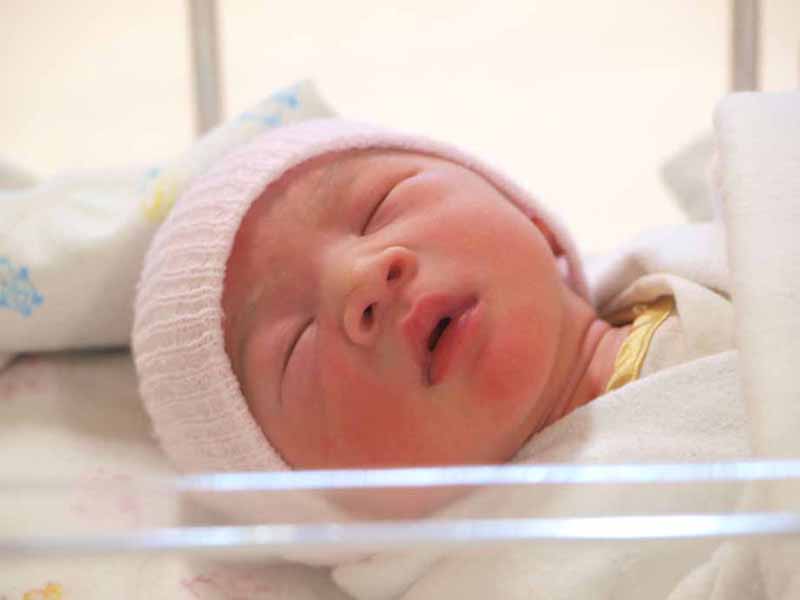USPSTF Final Recommendation Statement
Prevent Newborns' Eye Infection With Antibiotic Ointment
January 30, 2019, 08:35 am News Staff – On Jan. 29, the U.S. Preventive Services Task Force (USPSTF) posted a final recommendation statement and final evidence summary on ocular prophylaxis for gonococcal ophthalmia neonatorum (GON).
The USPSTF examined the benefits and harms of an antibiotic ointment applied at birth to prevent GON, a severe infection of the eye that can occur in babies born to women with gonorrhea, and found convincing evidence that applying this ointment to the eye is safe and effective.
So, the task force recommended prophylactic ocular topical medication for all newborns to prevent GON -- an "A" recommendation.
If left untreated, GON can cause serious eye problems, including corneal scarring, ocular perforation and blindness, as early as 24 hours after birth.
And without ocular prophylaxis, it's estimated that up to half of babies born to mothers with gonorrhea could develop GON. The only FDA-approved medication for this is erythromycin.

Ocular prophylaxis of newborns with 0.5 percent erythromycin ophthalmic ointment can prevent GON; because ocular prophylaxis is the standard of care for all newborns in the United States, GON is extremely rare (0.2 to 1.6 cases per 100,000 live births per year).
Gonorrhea continues to be a growing public health concern, with diagnoses increasing by 67 percent from 2013 to 2017, according to CDC data from last year.
Story Highlights
"The task force continues to recommend that all newborns are given antibiotic ointment to prevent GON," said USPSTF member Michael Silverstein, M.D., M.P.H., in a news release. "The medicine is safe and highly effective at preventing this serious eye infection and its devastating consequences, including blindness."
This final recommendation statement is consistent with and reaffirms the task force's 2018 draft recommendation and 2011 final recommendation, which the AAFP supported at the time.
When the draft version of this recommendation was released last September, AAFP Commission on Health of the Public and Science member Lynn Fisher, M.D., of Plainville, Kan., told AAFP News that the erythromycin ophthalmic ointment treatment is cheap, universally available and doesn't cause any adverse effects.
"Since women may be asymptomatic with a gonorrhea infection and some women may have poor prenatal care, for me, newborn treatment is just an easy way to ensure that I hopefully never see a case of gonococcal ophthalmia neonatorum during my career," he said.
In a separate recommendation, the USPSTF recommended that all pregnant women at risk for gonorrhea be screened and treated for the infection as part of routine prenatal care.
Response to Public Comment
A draft version of this final recommendation statement was posted for public comment on the USPSTF website from Sept. 11 to Oct. 9, 2018.
Several commenters questioned the continued need for universal prophylaxis given the relatively low rate of disease. In response, the task force reaffirmed its recommendation based on several factors, including the rapid course and serious adverse effects of infection, increasing rates of gonococcal infection and the large number of people who don't receive screening for gonococcal infection during pregnancy in the United States.
Some commenters supported risk-based prophylaxis as an alternative strategy for prevention, the USPSTF said. However, the task force noted that there currently aren't tools for assessing risk of infection in newborns and no studies examining the use of risk-based versus universal prophylaxis. The USPSTF revised the final recommendation to clarify this point.
Additionally, several commenters promoted the use of iodine solutions (povidone-iodine) as an alternative to erythromycin ophthalmic ointment.
But again, the evidence review found limited studies on the use of iodine solutions and noted that they aren't approved for use in the United States as ocular prophylaxis for GON. As such, the USPSTF added language to address this concern.
Up Next
The AAFP's Commission on Health of the Public and Science plans to review the USPSTF's final recommendation statement and evidence summary, and to determine the Academy's stance on the recommendation.
Related AAFP News Coverage
Final Recommendation Statement
Screen All Pregnant Women Early for Syphilis, Says USPSTF
(9/12/2018)